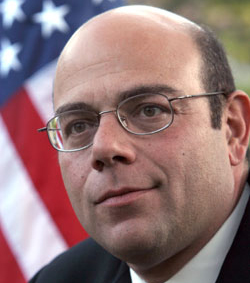The last few years have seen a resurgence of attention paid to the importance of Armenian, its use and continued viability, especially in the Diaspora and with a bit more emphasis on the Western branch of the language.
As with all matters, as solutions and ways forward are sought, not all ideas presented prove workable, nor all perspectives appropriate to the task at hand. I encountered one such worrisome conception in a recent article (written in Armenian). Here. Let me affirm my awareness of the irony of addressing issues regarding the Armenian language in English. In this case, it is perhaps doubly (or perhaps inversely?) ironic, as you’ll see.
Let me also affirm that I am an emphatic supporter of the maximal possible use of Armenian in our Diaspora’s life—a difficult, yet achievable, goal. In fact, many of those in my circle of friends and acquaintances would probably describe me as a pain-in-the-tush for insisting on, encouraging, or promoting use of Armenian in our daily, at least social, interactions. I really frown on the disuse and incomplete use of Armenian by those who are perfectly competent in the language. You’ll see why this is relevant and important to state.
Among the many good ideas presented and appropriate concerns addressed in the article was one very destructive one. To boot, the sense I got was that the author treated the matter mockingly and scornfully. The oppositional placement of Armenian language and Armenian spirit is what so worries me. The author harks back to a time, some three decades ago, when this issue was hotter. Some argued that it was more important to have Armenians in spirit than by language.
However, the problem lies in the very formulation of this question. It’s an example of the clichéd apples to oranges comparison. Language is one component of culture, along with architecture, art, dance, folklore, food, history, music, poetry, prose, religion (in some cases), sculpture, song, etc. Spirit is something that simultaneously undergirds and is supported by the items in the preceding list.
Plus, language, unlike most of the other items in the list, requires a form of use that is intense, requires regularity, and most of all, must have a reason or utility. Enjoying a French dish, or gaping at Egyptian architecture, honoring Persian monotheism, worshiping the Hebrews’ god, getting titillated by Indian sexual texts, or (make up your own example) does not require everyday use. Language does. If you don’t need it for work, play, or some other reason, you won’t use a particular language; it’s just too difficult. It’s a use-it-or-lose-it proposition.
What is that reason, that motivation, in the case of Armenian? In Armenia, it is clearly the practical consideration that it is the language of the land, and pretty much everything is done in Armenian (though the ruinous effect of Russian, courtesy of seven Soviet decades, is frighteningly apparent in daily speech). Obviously, scholarly work in the field of Armenian studies also requires use of the language. Yet, what is to support Armenian, make it necessary, useful, in the Diaspora? In some large communities where a concentrated Armenian ghetto exists, the practical consideration comes into play, much like in the homeland. But that is not situation in which the preponderance of Diasporan Armenians live. So, why should a 15-year-old bother with the language? It’s not needed for school, work, play, or any other major component of life, except perhaps to communicate with older generations—and that is obviously time-limited. So what’s the motivation to use, and even more so, use well, the language of our nation for such a teenager—or, two decades later, the same person as a parent with her/his own children?
Spirit! Armenian spirit. Once that human being is inspired by and engaged with the life of our nation in whatever way, then s/he has a reason to speak and use, maximally, our language. That’s how we will perpetuate Armenian in the Diaspora, not in any other way. I am the best example of this process that I know of. Had I not become engaged, hooked, inspired—somehow had the fire of my Armenian spirit ignited—I never would have bothered to strengthen my Armenian-language skills. I would have seen no reason to do so.
To argue that language is so important because of its (inarguable) ability to connect members of a nation that it must be the starting point to identity and engagement in the nation is to drive a wedge between those who don’t know/speak Armenian (often through no fault of their own) and those who do. That approach could push (and has in the past) a mass of otherwise potentially excited, engaged, and heartfelt Armenians away from our communities and our nation.
Let’s not debase one of the most important aspects of our national existence by needlessly turning it into a bone of contention, a target of people’s antipathy. Rather, let’s do everything we can, with all the tools available to us, to expand, maintain, and restore (as relevant to each person’s and community’s case) the use of our Armenian language.
























































